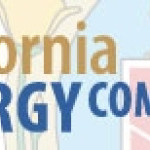- Industri: Energy
- Number of terms: 9078
- Number of blossaries: 0
- Company Profile:
California’s primary energy policy and planning agency
A private company that provides a utility, such as water, natural gas or electricity, to a specific service area. The investor-owned utility is regulated by the California Public Utilities Commission. In California the investor owned utilities supplying energy are: Canadian Pacific National Corporation; Pacific Gas and Electric Company; Pacific Power and Light Company; San Diego Gas & Electric; Sierra Pacific Power Company; Southern California Edison Company; Southern California Gas Company (The Gas Company); Southwest Gas Corporation.
Industry:Energy
The ratio of light from a lamp to the electrical power consumed, including ballast losses, expressed as lumens per watt. (See California Code of Regulations, Title 24, Section 2-5302)
Industry:Energy
A mass of coal, occurring naturally at a particular location, that can be commercially mined.
Industry:Energy
The ratio of the useful energy delivered by a dynamic system (such as a machine, engine, or motor) to the energy supplied to it over the same period or cycle of operation. The ratio is usually determined under specific test conditions.
Industry:Energy
A pipe system that transports pulverized coal suspended in water.
Industry:Energy
A unit of work or energy equal to the amount of work done when the point of application of force of 1 newton is displaced 1 meter in the direction of the force. It takes 1,055 joules to equal a British thermal unit. It takes about 1 million joules to make a pot of coffee.
Industry:Energy
Electricity Consumers Resources Council. ELCON is an association of 28 large industrial consumers of electricity. ELCON members account for over five percent of all electricity consumed in the United States. ELCON was formed in 1976 "to enable member companies to "work cooperatively for the development of coordinated, rational and consistent policies affecting electric energy supply and pricing at the federal, state, and local levels."
Industry:Energy
Cogeneration means the sequential use of energy for the production of electrical and useful thermal energy. The sequence can be thermal use followed by power production or the reverse, subject to the following standards: (a) At least 5 percent of the cogeneration project's total annual energy output shall be in the form of useful thermal energy. (b) Where useful thermal energy follows power production, the useful annual power output plus one-half the useful annual thermal energy output equals not less than 42.5 percent of any natural gas and oil energy input.
Industry:Energy
Certain colorless, low-sulfur oil products that burn without producing much smoke.
Industry:Energy
